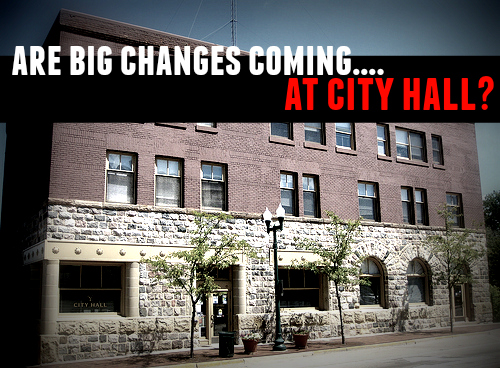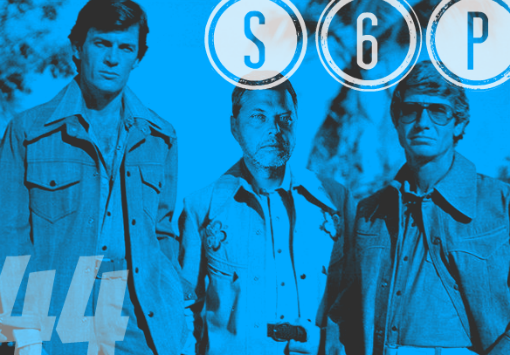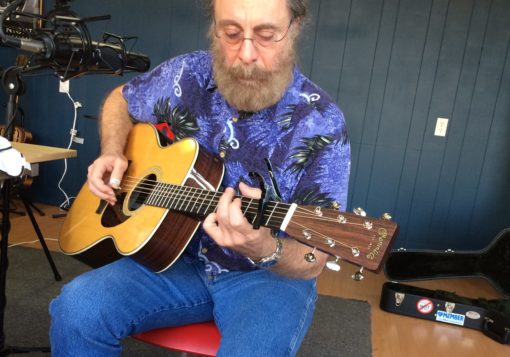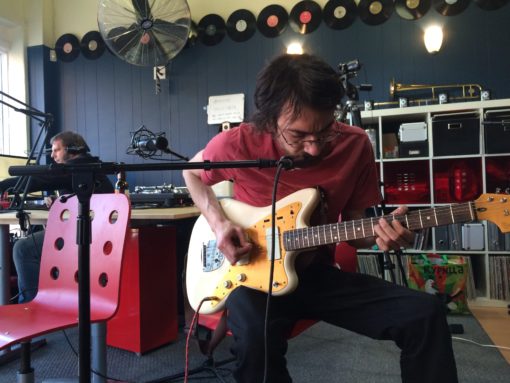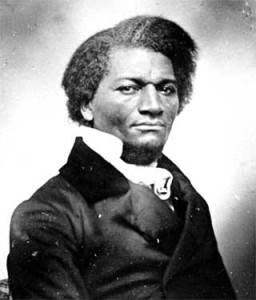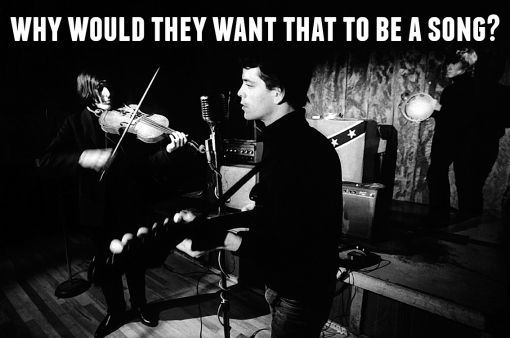I’d been working on something about the killings of Alton Sterling and Philander Castile. My premise was pretty simple… While it’s certainly appropriate to focus our anger at the police, I was going to suggest, we can’t lose site of the fact that there are larger forces at play. We can’t just blame the police for what is happening in America, and ignore the fact that much of what we’re seeing is the result not just of racist cops but the decisions our elected representatives have made over the last several decades. By segregating our communities, disinvesting in poor and non-white areas, systematically dismantling public education, pushing jobs out of the country, and giving those in poverty little hope of bettering their situations, they’ve created a situation where certain communities have essentially become de facto prison yards, policed by officers whose job it is not to protect and serve but to enforce order at all costs… Thankfully, though, as I was working on this post of mine, President Obama came along and essentially said the same thing, only much more eloquently. Here, in case you missed it, is what he posted last night from Warsaw.
TRANSCRIPT:
Good evening, everybody. I know we’ve been on a long flight, but given the extraordinary interest in the shootings that took place in Louisiana and Minnesota, I thought it would be important for me to address all of you directly.
And I want to begin by expressing my condolences for the families of Alton Sterling and Philando Castile.
As I said in the statement that I posted on Facebook, we have seen tragedies like this too many times. The Justice Department, I know, has opened a civil rights investigation in Baton Rouge. The governor of Minnesota, I understand, is calling for an investigation there, as well. As is my practice, given my institutional role, I can’t comment on the specific facts of these cases, and I have full confidence in the Justice Department’s ability to conduct a thorough and fair inquiry.
But what I can say is that all of us as Americans should be troubled by these shootings, because these are not isolated incidents. They’re symptomatic of a broader set of racial disparities that exist in our criminal justice system. And I just want to give people a few statistics to try to put in context why emotions are so raw around these issues.
According to various studies — not just one, but a wide range of studies that have been carried out over a number of years — African Americans are 30 percent more likely than whites to be pulled over. After being pulled over, African Americans and Hispanics are three times more likely to be searched. Last year, African Americans were shot by police at more than twice the rate of whites. African Americans are arrested at twice the rate of whites. African American defendants are 75 percent more likely to be charged with offenses carrying mandatory minimums. They receive sentences that are almost 10 percent longer than comparable whites arrested for the same crime.
So that if you add it all up, the African American and Hispanic population, who make up only 30 percent of the general population, make up more than half of the incarcerated population.
Now, these are facts. And when incidents like this occur, there’s a big chunk of our fellow citizenry that feels as if because of the color of their skin, they are not being treated the same. And that hurts. And that should trouble all of us. This is not just a black issue. It’s not just a Hispanic issue. This is an American issue that we should all care about. All fair-minded people should be concerned.
Now, let me just say we have extraordinary appreciation and respect for the vast majority of police officers who put their lives on the line to protect us every single day. They’ve got a dangerous job. It is a tough job. And as I’ve said before, they have a right to go home to their families, just like anybody else on the job. And there are going to be circumstances in which they’ve got to make split-second decisions. We understand that.
But when we see data that indicates disparities in how African Americans and Latinos may be treated in various jurisdictions around the country, then it’s incumbent on all of us to say, we can do better than this; we are better than this — and to not have it degenerate into the usual political scrum. We should be able to step back, reflect, and ask ourselves, what can we do better so that everybody feels as if they’re equal under the law?
Now, the good news is, is that there are practices we can institute that will make a difference. Last year, we put together a task force that was comprised of civil rights activists and community leaders, but also law enforcement officials — police captains, sheriffs. And they sat around a table and they looked at the data and they looked at best practices, and they came up with specific recommendations and steps that could ensure that the trust between communities and police departments were rebuilt and incidents like this would be less likely to occur.
And there are some jurisdictions out there that have adopted these recommendations. But there are a whole bunch that have not. And if anything good comes out of these tragedies, my hope is, is that communities around the country take a look and say, how can we implement these recommendations, and that the overwhelming majority of police officers who are doing a great job every single day, and are doing their job without regard to race, that they encourage their leadership and organizations that represent them to get behind these recommendations.
Because, ultimately, if you can rebuild trust between communities and the police departments that serve them, that helps us solve crime problems. That will make life easier for police officers. They will have more cooperation. They will be safer. They will be more likely to come home. So it would be good for crime-fighting and it will avert tragedy.
And I’m encouraged by the fact that the majority of leadership in police departments around the country recognize this. But change has been too slow and we have to have a greater sense of urgency about this.
I’m also encouraged, by the way, that we have bipartisan support for criminal justice reform working its way through Congress. It has stalled and lost some momentum over the last couple of months, in part because Congress is having difficulty, generally, moving legislation forward, and we’re in a political season. But there are people of goodwill on the Republican side and the Democratic side who I’ve seen want to try to get something done here. That, too, would help provide greater assurance across the country that those in power, those in authority are taking these issues seriously. So this should be a spur to action to get that done, to get that across the finish line. Because I know there are a lot of people who want to get it done.
Let me just make a couple of final comments. I mentioned in my Facebook statement that I hope we don’t fall into the typical patterns that occur after these kinds of incidents occur, where right away there’s a lot of political rhetoric and it starts dividing people instead of bringing folks together. To be concerned about these issues is not to be against law enforcement. There are times when these incidents occur, and you see protests and you see vigils. And I get letters — well-meaning letters sometimes — from law enforcement saying, how come we’re under attack? How come not as much emphasis is made when police officers are shot?
And so, to all of law enforcement, I want to be very clear: We know you have a tough job. We mourn those in uniform who are protecting us who lose their lives. On a regular basis, I have joined with families in front of Capitol Hill to commemorate the incredible heroism that they’ve displayed. I’ve hugged family members who’ve lost loved ones doing the right thing. I know how much it hurts. On a regular basis, we bring in those who’ve done heroic work in law enforcement, and have survived. Sometimes they’ve been injured. Sometimes they’ve risked their lives in remarkable ways. And we applaud them and appreciate them, because they’re doing a really tough job really well.
There is no contradiction between us supporting law enforcement — making sure they’ve got the equipment they need, making sure that their collective bargaining rights are recognized, making sure that they’re adequately staffed, making sure that they are respected, making sure their families are supported — and also saying that there are problems across our criminal justice system, there are biases — some conscious and unconscious — that have to be rooted out. That’s not an attack on law enforcement. That is reflective of the values that the vast majority of law enforcement bring to the job.
But I repeat: If communities are mistrustful of the police, that makes those law enforcement officers who are doing a great job and are doing the right thing, it makes their lives harder. So when people say “Black Lives Matter,” that doesn’t mean blue lives don’t matter; it just means all lives matter, but right now the big concern is the fact that the data shows black folks are more vulnerable to these kinds of incidents.
This isn’t a matter of us comparing the value of lives. This is recognizing that there is a particular burden that is being placed on a group of our fellow citizens. And we should care about that. We can’t dismiss it. We can’t dismiss it.
So let me just end by saying I actually, genuinely, truly believe that the vast majority of American people see this as a problem that we should all care about. And I would just ask those who question the sincerity or the legitimacy of protests and vigils and expressions of outrage, who somehow label those expressions of outrage as “political correctness,” I’d just ask folks to step back and think, what if this happened to somebody in your family? How would you feel?
To be concerned about these issues is not political correctness. It’s just being an American, and wanting to live up to our best and highest ideals. And it’s to recognize the reality that we’ve got some tough history and we haven’t gotten through all of that history yet. And we don’t expect that in my lifetime, maybe not in my children’s lifetime, that all the vestiges of that past will have been cured, will have been solved, but we can do better. People of goodwill can do better.
And doing better involves not just addressing potential bias in the criminal justice system. It’s recognizing that too often we’re asking police to man the barricades in communities that have been forgotten by all of us for way too long, in terms of substandard schools, and inadequate jobs, and a lack of opportunity.
We’ve got to tackle those things. We can do better. And I believe we will do better.
Thanks very much, everybody.

